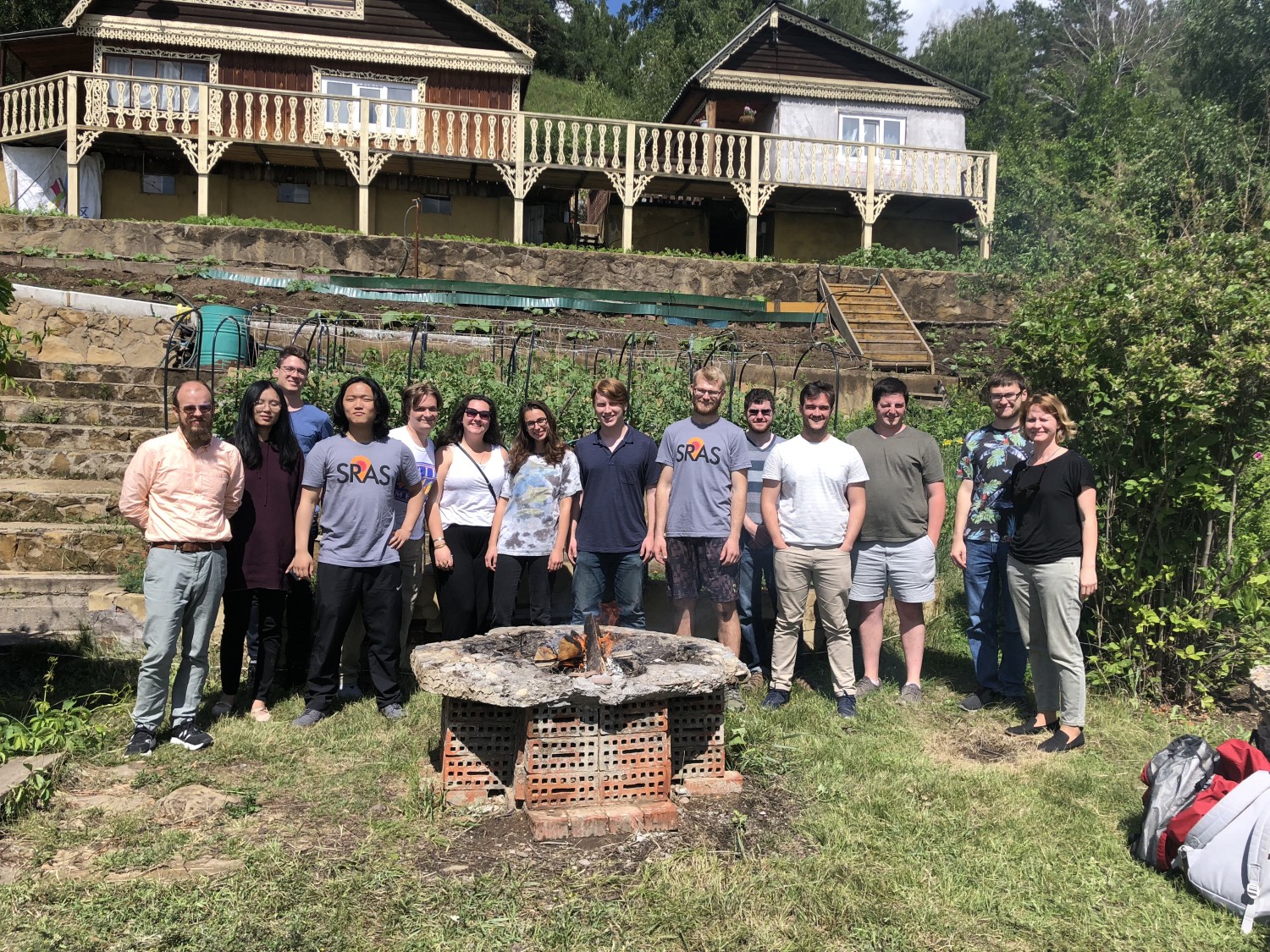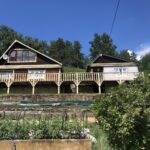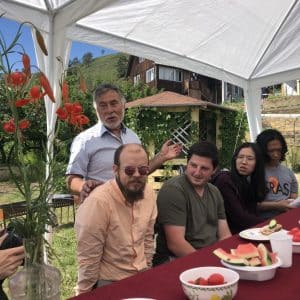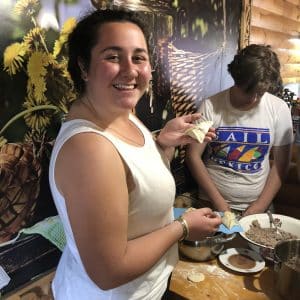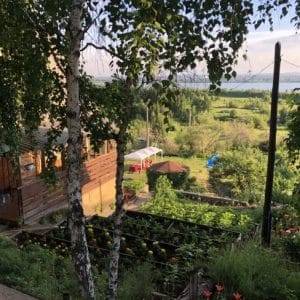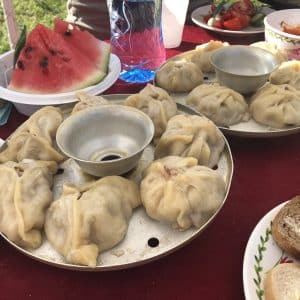Dacha – a summer house with rich cultural and economic history – is an integral part of Russian life. To help students get familiar with its peculiarities, regular visits are organised by SRAS to dachas outside of Moscow, St. Petersburg, and Irkutsk. Here, we asked our students from all of those locations to share their impressions with us.
Katya Grigerman (Summer, 2019)
On a bright and sunny Thursday afternoon, SRAS took our group and headed about 30 minutes north of the city to a dacha owned by a friend of the academic coordinator of our program.
A dacha is place located away from the city that generally has a small home, a plot of land, and sometimes a banya (a Russian sauna) and a garden. Russians use the dacha to escape the city during the summers and cut down on grocery bills by growing and preserving food.
After arriving and getting shown around by the son of the owner, it was very clear that this was a family dacha. There were brothers and sisters, nieces and nephews, and friends from all around spending time there. The dacha and the land surrounding it was incredibly beautiful – stunningly green with lots of fruits and veggies growing, and even a small pool made by the owners for the kids to play in. The view was just as lovely – you could see the sparkling river and the city from far away. After spending some time relaxing in the garden and eating soem really tasty little sandwiches, fish pirog (a pie type of dish), and drinking juice, it was time for the buuzy making and banya!
As the banya was too small to host the whole group at once, we split into two halves. Half the group went straight to the banya, and I, along with seven others decided to start with the buuzy. Buuzy are traditional Buryat dumplings, and they are made by folding the edges of a round, flat dough around a scoop of meat into a beautiful little ruffled circle. Unfortunately, while I love to cook, I was no buuzy-making prodigy, and had to resort to making them look like mantee (the Central Asian dumpling that my Russian father and I make back at home in America). Since I also don’t eat pork, and buuzy are usually made with ground pork and beef mixture, the hosts arranged for me to have my own bowl of just beef to stuff them with. I was incredibly excited about that. It’s been hard trying to find them in the city without pork.
Once the other group had finished in the banya, it was our turn! Traditionally, people go into banyas either just naked, or with a bed sheet wrapped around them. However, in this case, most of our mostly-American group went in a swimsuit. I decided to keep with tradition, and used a bedsheet. Russians usually prefer this because it allows you to sweat more freely, doesn’t concentrate the heat as much on a single part of the body, and generally allows you to get cleaner – which is the main point of the banya.
A banya is an incredibly hot room – usually hotter than the saunas we are used to in America. You sit there breathing the hot air and letting your body sweat everything out. Then you take a break outside for a few minutes, and keep repeating the process until you are ready for the venik. The venik is a bundle of sticks from a birch tree with the leaves still attached. The Russian word literally translates to “broom.” You lay down, and someone uses this to essentially smack you repeatedly. This helps clean the skin and get the dead skin off. Birch also has a fresh scent, which is left on you after a good beating. While it sounds strange, the process is honestly amazing. Our wonderful venik woman, a volunteer from the family named Julia, was fabulous and it was a true Siberian banya experience.
After washing off and changing, we went downstairs to the garden to eat the buuzy and shashlik (meat skewers). There were fresh veggies, and the food was so good. While food from many Irkutsk restaurants has been amazing, homemade food is always the best, especially with such an incredible view and company!

